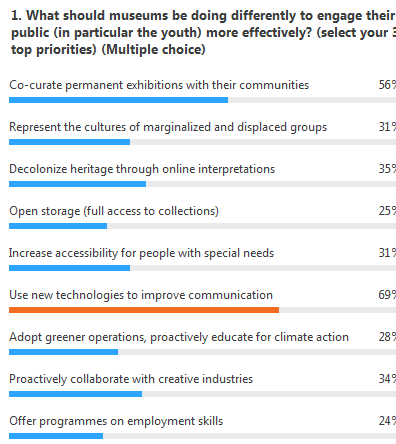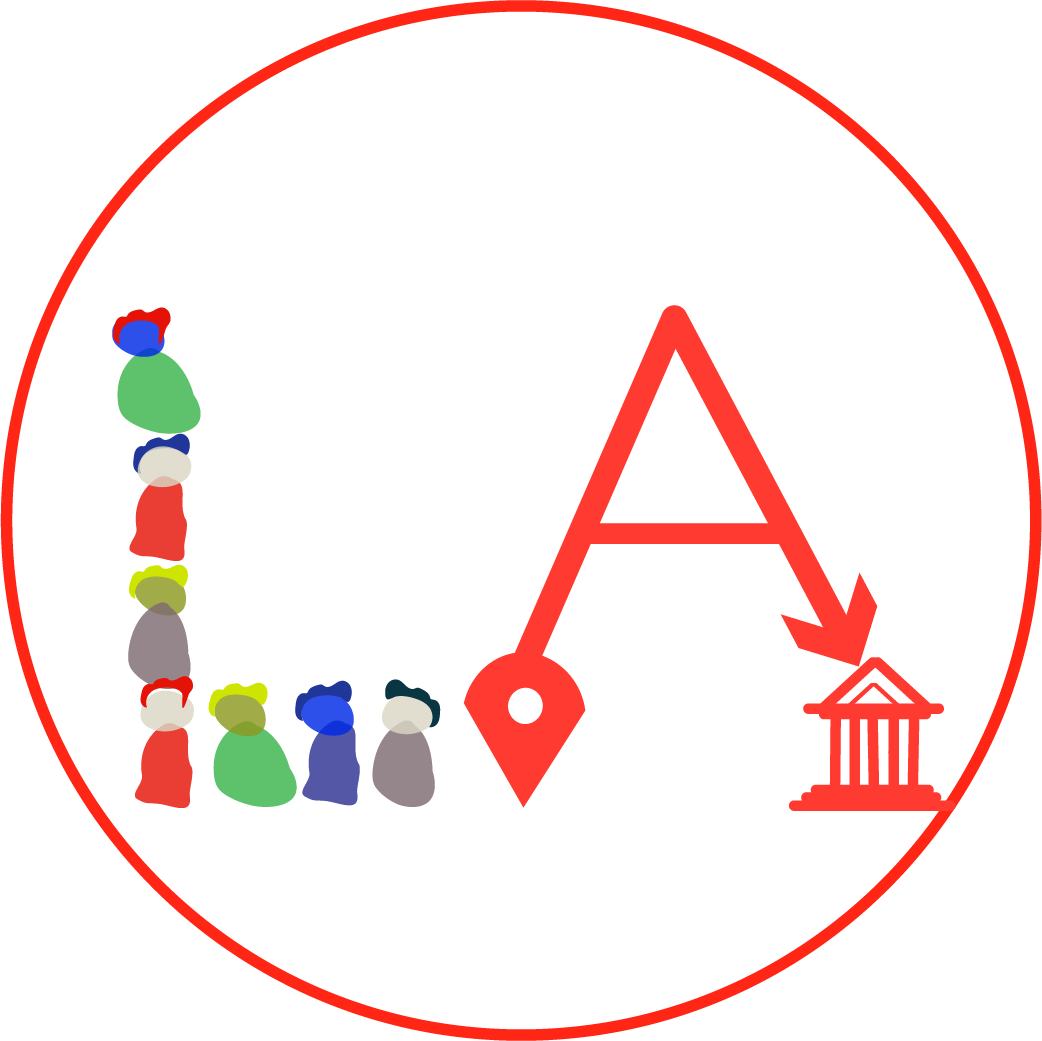The webinar on Museums after the Pandemic discussed with experts the challenges during and after the COVID-19, how can they adapt and how can they reach their full potential.
Section 1
The experts first discussed the current situation of museums and the findings of the recent reports of UNESCO and ICOM.
According to those reports, more than 95000 museums are operating worldwide, of which 90% had to close temporarily. The impact of their close is financial as 10% will never reopen, social with their educational and social role diminished and safety with many artefacts in danger of theft. Among the highlighted issues is the fall of donors and tourism affecting the economic sustainability of museums and a digital divide between museums and between society, with only 800 museums able to provide digital content.
In response, the experts painted the picture in a regional and international level. All museums were closed internationally, and the lack of tourism will only add to the problem of financial sustainability.
The Digital Divide should be addressed immediately. Specific actions are to digitise collections, provide infrastructure to museums that do not have the funding or expertise to address the need. Ensure equality in technology between museums as well as museums and the communities they serve. Offer positive digital presence online tours.
On this note, museums lack communication with the public and need to invest in their relationship with the local community. It is necessary to implement social media strategies, employ a community manager and be active in their community.
Tying to communication is the need for more educational programs, either online, through zoom or social media, or with collaboration with health initiatives on social projects such as providing art supplies.
During this Pandemic government emergency response places culture last, with little to none emergency funding. Resulting in the closure of special projects and planned staff lay-offs.
With Museums closed, the collections are unattended. Therefore, threatened by environmental conditions, theft and no emergency response and disaster risk management. Emergency assistance from international professionals, such as conservators, is not possible, urging Museums to build the skills necessary within the local community.
Section 2
The second topic, Museums and Society, included a poll asking participants whether museums realise their full capacity with 65% responding No. Pondering on what is the essence of Museums the response includes beyond preservation and education, economic, touristic and prestige elements. People generally agree that “Museums are important” however, Museums need to actively find new ways to give truth to this statement and maintain relevance. Museums need to play an educational role to make sure people are not indifferent to them and integrate into the heart of a community.
Heritage is preserved as a living memory of society, identity and our world. Museums preserve the knowledge of the community allowing the creation of new futures.
To improve the role of Museums in society, the experts offered a few suggestions. Offer a variety and more inclusive access to collections, including but not limited to, ensuring people with special needs can enjoy them.
Make changes in policy and offer equal opportunity for employment and professional development to obtain a higher standard of Museum development.
Emphasise Natural History Museums as a source for answers during the Pandemic, gender, diversify collections and intergenerational communication.
Section 3
How to enable a better future for museums was the emphasis of the third section. Introduced that ICOM works on redefining the Museum and UNESCO repeated the relevance of their 2015 recommendation.
Poll for the participants results:

The experts agreed that we need to rethink the concept of Museums and show their value and relevance making concrete societal changes. Moreover, Museums need to address the public and governance of why allocating funding for heritage protection is imperative. Heritage policy should take into account the fragility of our world as demonstrated by COVID-19. Heritage professionals should be part of the essential workers’ group. To achieve these changes Museums should build advocacy in local government and collaborate in legislation.
The emphasis lies on the way heritage builds our identity, and that we need identity and communal memory to build our future. As well as ponder the philosophical questions of our existence. The Museum now must be community tailored and offer public education, lifelong learning and programs specific to locals. Boost local tourism and offer multiple access points with an optimised and harmonised on-site and online experience. Even expand, by building the necessary heritage management tools within the community. Employ local artists, environment and wellness professionals.
Q&A
The Q&A involved the experts answering questions from participants. Since the questions were relevant to the topics discussed we incorporated them in the sections above.
Local Approach followed the webinar and asked whether the Corporate Museum model could be a sustainable economic solution. Francois Mairesse answered that it could be possible for some Museums. However, it is not enough, also needing the market, state and community.
We are very excited to see heritage professionals collaborate in such a public way. The webinar was very informative on the reality of COVID-19 for Museums and underlined their priorities. We certainly fill that our mission is relevant! We plan to create posts in alignment with the experts’ proposals.
The webinar took place 23 July 2020 with Hosts
ICCROM (International Centre of Studies for the Conservation and Restoration of Cultural Heritage) and UNESCO (United Nations Educational, Scientific and Cultural Organization).
Speakers
ICCROM
- Mr. Webber Ndoro, Director-General, ICCROM
- Ms. Valerie Magar, Unit Manager, Programmes, ICCROM
UNESCO
- Mr. Ernesto Ottone R., Assistant-Director General for Culture, UNESCO
- Mr. Lazare Eloundou Assomo, Director of Entity Culture and Emergencies, UNESCO
Panelists
- Ms. Anne-Marie Afeiche, Director General, General Council, Lebanon.
- Mr. Darko Babić, Chair of the Museology Sub-Department, Faculty of Humanities and Social Sciences, University of Zagreb, Croatia.
- Ms. Asma Ibrahim, Director of the Museum and Art Gallery Department for the State Bank of Pakistan.
- Mr. François Mairesse, Professor, Université Sorbonne Nouvelle, Cultural Economics and Museology, UNESCO Chair on Museums, France
- Ms. Rooksana OMAR, Chief Executive Officer: Iziko Museums of South Africa.
- Ms. Natalie Urquhart, Director and Chief Curator of the National Gallery of the Cayman Islands; President of the Museums Association of the Caribbean.
I want to learn more:
ICCROM-UNESCO webinar on Museums after the Pandemic
UNESCO Report on Museums Around the World in the Face of COVID-19 available on line.
Museums, museum professionals and COVID-19: ICOM and UNESCO release their full reports
2015 Recommendation concerning the Protection and Promotion of Museums and Collections
Today was also the webinar “IN SESSION – Is Design Humanity’s Best Friend?” with Tim Marlow, Director and Chief Executive of the Design Museum in London, and Jeremy Myerson, Helen Hamlyn Professor of Design at the RCA. The webinar discusses the Design Museum’s stance and perspective post-COVID-19 . If you want to learn more, it will be uploaded on their website next week for everyone to view.
https://www.rca.ac.uk/news-and-events/events/session-design-really-humanitys-best-friend/

